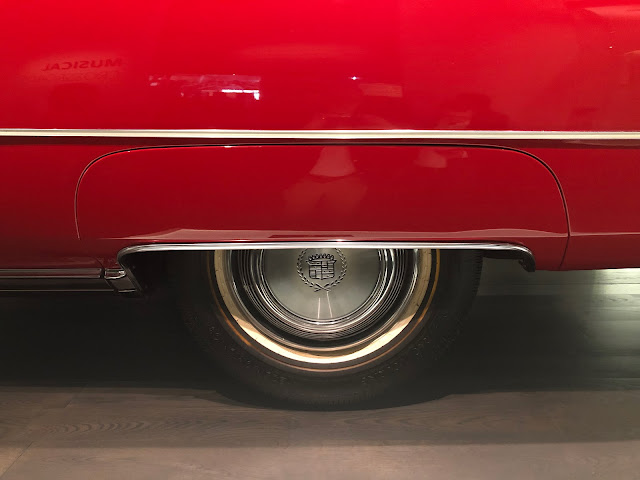
I was happy just to leave the house Monday, walk around the corner to Cherry Street with my wife, and sit on the curb on Cherry Street, the dog between us, on a beautiful May morning. The fact that a parade would soon pass by, well, icing on the cake.
Yes, I noticed the big public works trucks parked to block the side streets. Keeping us safe. But didn't think too deeply about them. For a smart guy, I can ignore stuff when I want to. My wife drew attention to the heightened security, observing that it made her, paradoxically, feel less secure. A reminder of the changed reality.
This was the first patriotic holiday after the July 4 shooting in Highland Park, a few suburbs to the east and north. There didn't seem to be an unusual amount of police around. My wife observed that Greenbriar Elementary School was directly behind us. The roof. I countered that the roof was pretty steeply sloped. Not much of a perch for a sniper. Still, what she was suggesting rattled me, a little, and I idly wondered what we'd do if something happened. Run away. That way, I guess. Would we make it across the street? Maybe not.
The parade kicked off promptly at 10:30 a.m. with a Northbrook policeman on a motorcycle. Then the flag color guard and the vets. We stood and clapped. I removed my hat. Thumbs up to Tom Mahoney, commander of American Legion Post 791. We have coffee sometimes. A wave to my neighbor Ray Garcia, in his Vietnam watch cap.
Then vets from Covenant Village, marching alongside the retirement center's bus. The junior high school band. Then the Boy Scouts, the Cub Scouts — which included, I noted with satisfaction, girl Cub Scouts. A big deal, at the time. Now, not so much. Then the actual Girl Scouts. No boy Girl Scouts, that I noticed. Maybe that's next. The high school band. One fire truck. And to end the parade, another cop on a motorcycle.
That's it. I looked at my watch: 10:37 a.m. Seven minutes — or less. I didn't check the time when it started. It could have been a minute or two late. A seven-minute parade. Maybe five.
We made our way home, stopping to talk to Zelig Moscowitz — he runs Circle of Friends, an outreach program for people with disabilities. "Important work," I told him. I knew his father, Daniel, head of the Chabad in Chicago. And his brother, Meir. By the Village Hall, a firefighter who lives in Huntley said hello. I reminded him of the parade in 2000 to celebrate Northbrook's 100th anniversary. With 100 fire trucks. I had one of those bulky video cameras, and was filming the trucks. It was heavy, and my arm would get tired. But every time I lowered the camera, my 5-year-old started to cry. He didn't want to miss preserving a single firetruck. I don't know if we ever looked at the video. Probably not. He lives in San Francisco now.
We spoke to assorted neighbors. Other people walked past — a man and his two sons arrived for the parade, too late, and missed it all. The boys seemed to take it well — perhaps the reality hadn't yet dawned that they were heading home. We felt bad for them. One neighbor speculated that the parade was so short because the village didn't want the logistical headache of securing a longer parade. A seven-minute parade is enough of a soft target. They didn't want to push their luck with 10 or 15 minutes. The entire parade route was five blocks long.
Yes, it was sad that they felt the need to dial back the parade — if that is indeed what happened. And that heavy public works trucks had to be parked at intersections, to deter ... what? Suicide bombers. Vehicles racing down side streets to plow into the Boy Scouts? Anything is possible, in the worst sense of the term.
Still. I'm still glad they held the parade. "A community building event" I told the firefighter. We don't live in a world where sleepy suburbs are too afraid to hold Memorial Day parades. Not yet, anyway. If violence is contagious, maybe so is tranquility. Maybe some of it will rub off.































